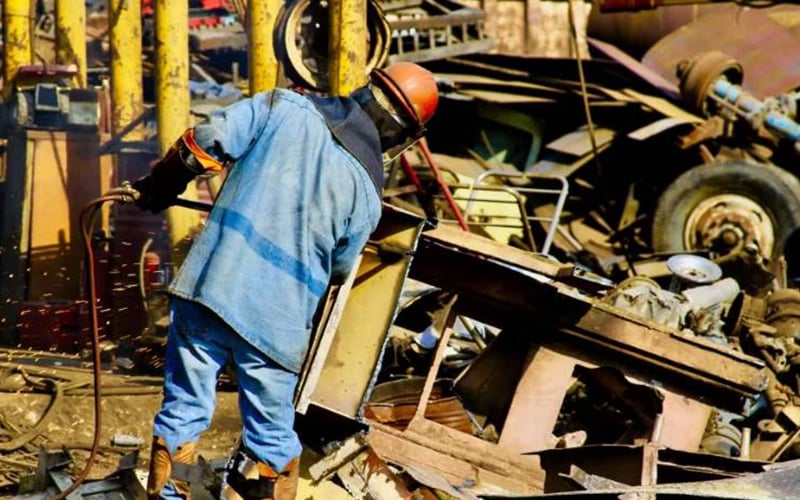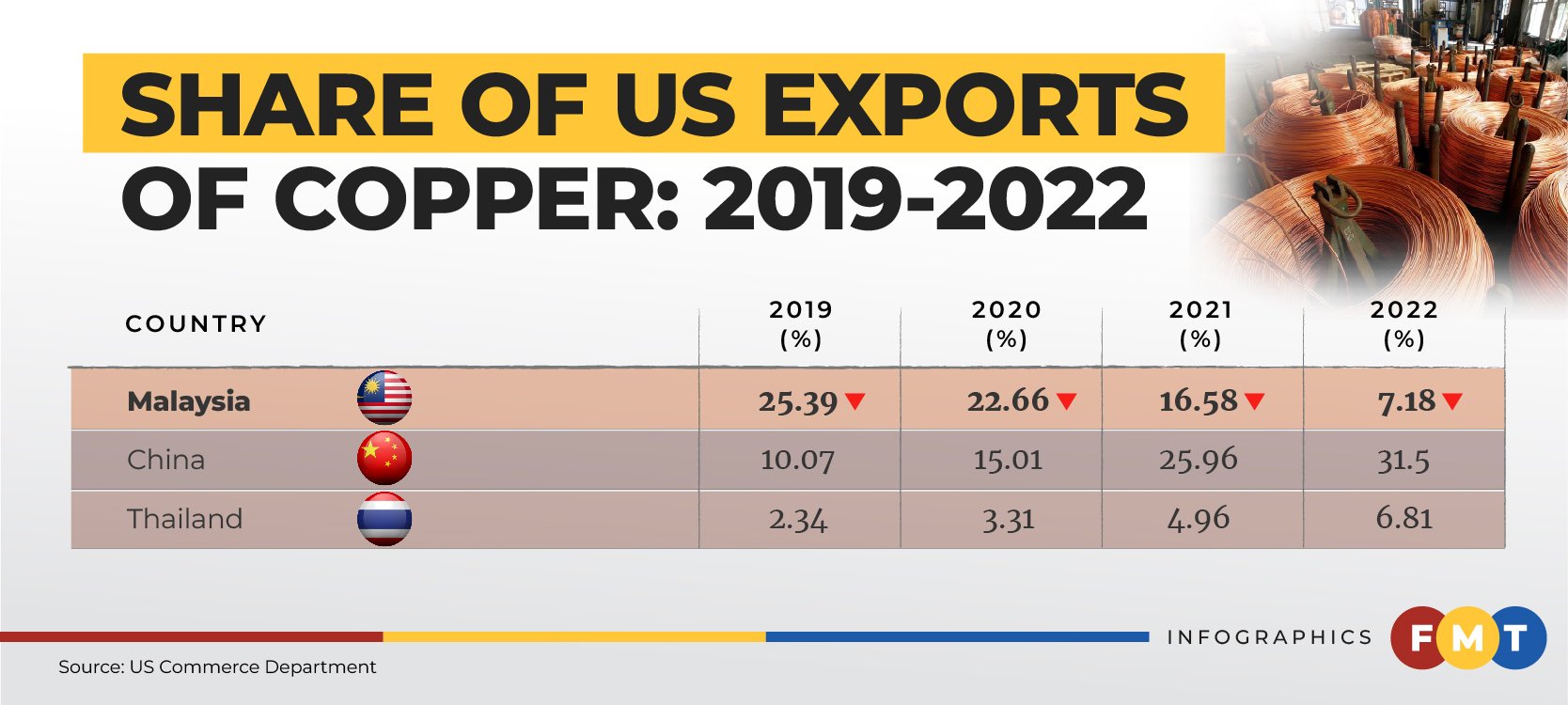
PETALING JAYA: As a looming shortage of copper threatens to short-circuit the global transition to green energy, a 2021 ruling to tighten imports of scrap metal is now threatening to throttle the Malaysian copper recycling industry.
Recently, S&P Global estimated that the demand for copper will double by 2035 and by 2040, the gap between output from copper mines and demand for the metal will reach 14 million tonnes.
This gap can only be filled by recycled copper.
However, a decision by Sirim Bhd to raise the purity standard for imported ferrous and non-ferrous scrap metals means that only scrap with the highest concentration of copper would be allowed into the country.
Copper is an essential component in the manufacturing of batteries for electric vehicles (EVs), wiring for solar panels and various other components as the world moves away from oil and gas for energy production.
The Sirim requirement has made it difficult to meet any increased in demand for copper extracted from scrap, according to Malaysian Indian Metal Traders Association (Mimta) president P Krishnamurthi.
Under Sirim’s requirement, the relevant metal must account for at least 94.75% of the content of the imported scrap, while the ferrous metal content must not exceed 5% and solid plastic content must not be more than 0.25%. There is zero tolerance for other impurities.
The new standard, which came into effect on Jan 10, 2022, is higher than that for China (where impurities of up to 1% is allowed), Indonesia and other scrap processing countries.
As a result, the import of scrap copper fell by 91.9% from December 2021 to December 2022.

Impact on recyclers
Metal traders, who had hoped for a respite from the Covid-19 supply chain disruptions, are now seeing their supply squeezed.
In response to questions from FMT Business, Krishnamurthi said the Sirim requirement will have a negative impact on the supply of the scrap that Malaysia specialises in processing.
Copper is essential in developing increasingly sophisticated technology because it is light weight, easy to forge and a better conductor of electricity than aluminium.
Krishnamurthi said there were opportunities to supply processed and refined copper to big electronics and electrical manufacturing companies in the country, such as Samsung, BM Nagano Industries Sdn Bhd and Sato Malaysia Electronics.
“(There must be a) rising awareness about the benefits of scrap metal recycling, demand for recycled metals as well as government initiatives to promote sustainable waste management practices,” he said.
“The environmental concerns about scrap metal recycling can be addressed through the use of high-technology to minimise air or water pollution.”
S&P Global said the rising demand for copper to fuel the transition to green energy would open up more opportunities for recycling.
Krishnamurthi said that with more EVs approaching end-of-life the recycling market was poised for growth.
“However, low prices of scrap metal, lack of awareness among consumers, and stringent regulations are some of the challenges faced by the market,” he said.
S&P Global estimates show that recycled copper will account for 22% of all refined copper in the market by 2035, up from 17% currently.
The question is whether Malaysia will be behind the wheels in driving production of recycled copper forward, or if we will remain a passenger. - FMT



No comments:
Post a Comment
Note: Only a member of this blog may post a comment.